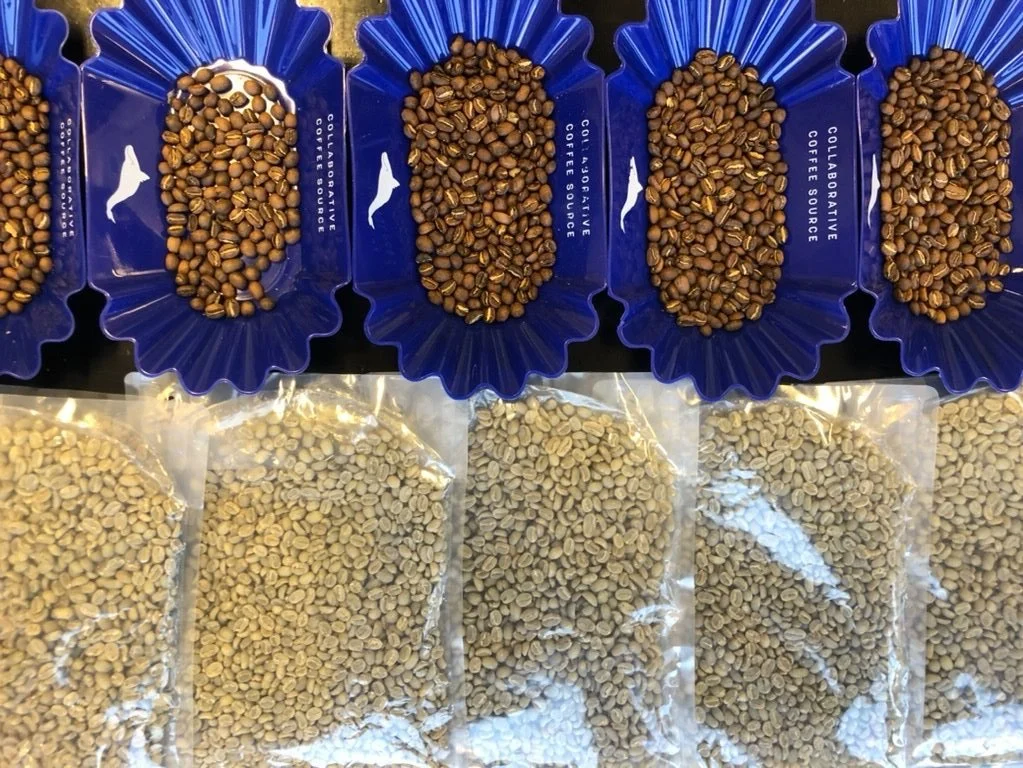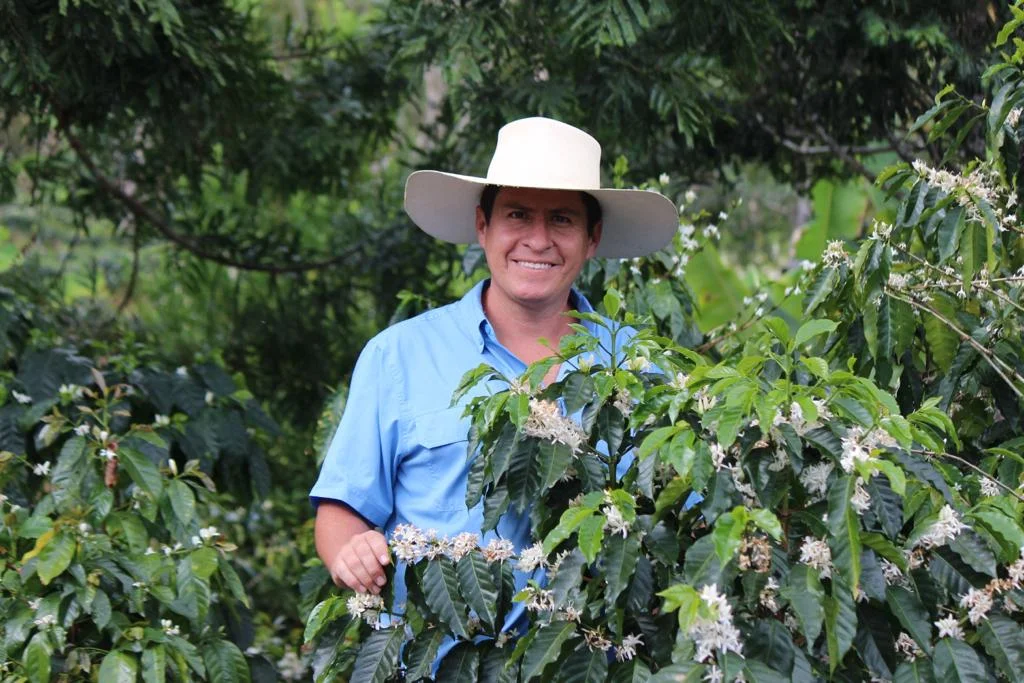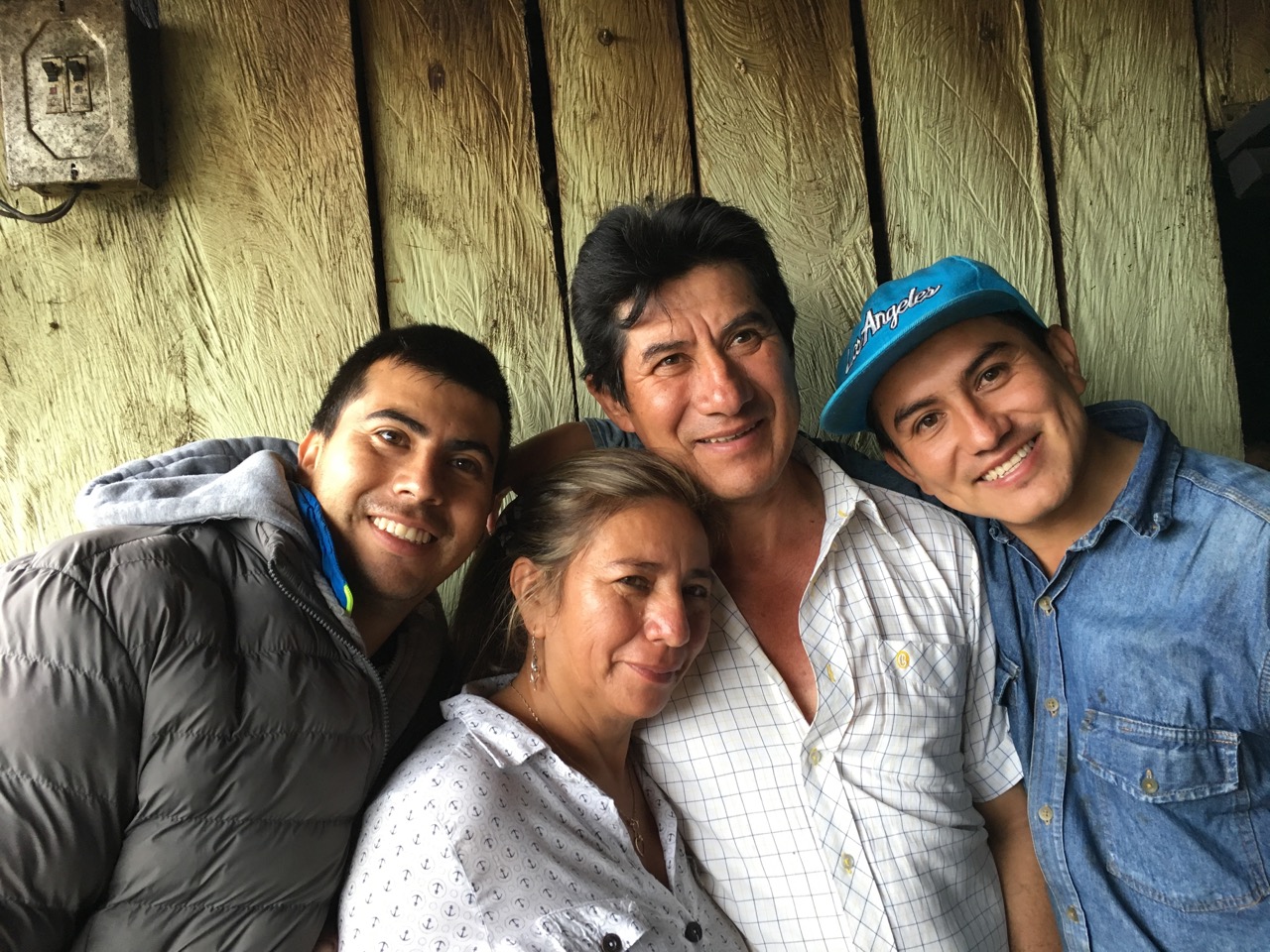As an industry we talk about FOB prices, contextualising these figures by describing them in relation to the C-Price or Fair Trade Price Floor. However these numbers don't reflect what farmers actually earn, or what they have to invest to produce coffee of such high quality.
Most of us are aware that producing specialty coffee requires a greater investment from the producer, but knowing exactly how much is hard to calculate.
Colombian producer, Maria Bercelia Martinez, was an entrepreneur before she was a coffee producer, and her daughter graduated university with an accounting degree. She keeps detailed accounts of her expenses for her farm, Finca Los Angeles, in Acevedo, Huila, and she has very generously compiled and shared some financial information with us. This data, in the downloadable spreadsheet below, provides an insight into the kind of investment required to produce specialty grade coffee.
Maria Bercelia Martinez is a unique producer. Almost 70% of the coffee she cultivates achieves scores of 86 or higher, which is a remarkable achievement. But she admits that she is struggling to make ends meet. The costs of production are increasing, but the price paid for coffee does not reflect this.
Maria Bercelia's biggest expenses
Picking
The number one expense is picking coffee. Maria Bercelia pays her pickers 5000 Colombian Pesos (COP) per arroba (12.5kg), plus the family provide food and accommodation. Maria told me the salary of pickers has more than doubled in the last two years, and finding trained pickers who know how to select only the ripe cherries is a challenge for all producers of specialty coffee in her region.
The cost of food increased significantly in the last two years, something I can attest to from personal experience, having lived in Colombia from 2011 until early this year. This is due to two main factors. Firstly the country was hit by a drought two years ago. Secondly, the Colombian peso lost over 40% of its value in a six month period in 2014/2015, which caused high inflation and an increase in the cost of living. This impacts Maria Bercelia's costs of production, as she offers food in addition to the pickers' wages, rather than subtracting the cost of food from their salary.
Inputs
This sudden devaluation of the peso also significantly increased the cost of inputs like fertilizers and fungicides (to fight the ever-present threat of coffee leaf rust), which are imported, or use imported ingredients.
Drying
Drying coffee while maintaining quality is a slow and involved process. On Maria Bercelia's farm, the coffee spends four to six days in a second story drying bed with a plastic canopy and walls that can be raised to allow airflow, and closed when it rains. The coffee is then moved to a series of raised drying beds. During this process the coffee is moved every couple of hours, depending on humidity, to ensure even drying. This is also the period when the parchment coffee is carefully hand-sorted to remove any contaminants and less than perfect beans, a time-consuming task.
Caveat
The financial information in this spreadsheet was provided by one producer, working on one farm. It is not meant to be representative of all farmers working in specialty coffee, or even all farmers in her region. We do not present this information as verified data, it is self-reported financial information reported directly to us. The estimated day-rates of labor are Maria Bercelia's. The estimated cost in USD is based on an average conversion of COP to USD for the December 2017 to May 2018 period in which Maria Bercelia was paid for her coffee.
Not included in this document
There are many costs that are not included in this spreadsheet, including the cost of purchasing land, setting up the farm, buying the seedlings, planting trees, building worker accommodation, or the interest Maria Bercelia must pay on the loan she took to keep the farm running when Colombia's coffee prices plummeted. These costs should be considered as part of the cost of production, and without them we decided not to calculate a cost of production per kilogram in the spreadsheet below.
Why share this information?
Despite its omissions, this is detailed financial information that can enlighten those of use who work in specialty coffee, but don't spend our days on a farm. We see this document as a crucial starting point for a discussion about specialty coffee prices, in Colombia and beyond. Maria Bercelia, and most farmers we have spoken to in the region, all question why the price paid for specialty is linked to the C-Price, and does not reflect the cost of production. For farmers like Maria Bercelia, the latter has significantly increased in recent years while the price they earn for their coffee has not.
Next week we will publish data of Maria's production, and the prices she was paid for her coffee from the recent 2017/2018 harvest. Sign up for our newsletter if you would like to be notified when Part 2 of this blog post is live.
We welcome your thoughts, opinions, concerns and ideas. Please leave us a comment below.












